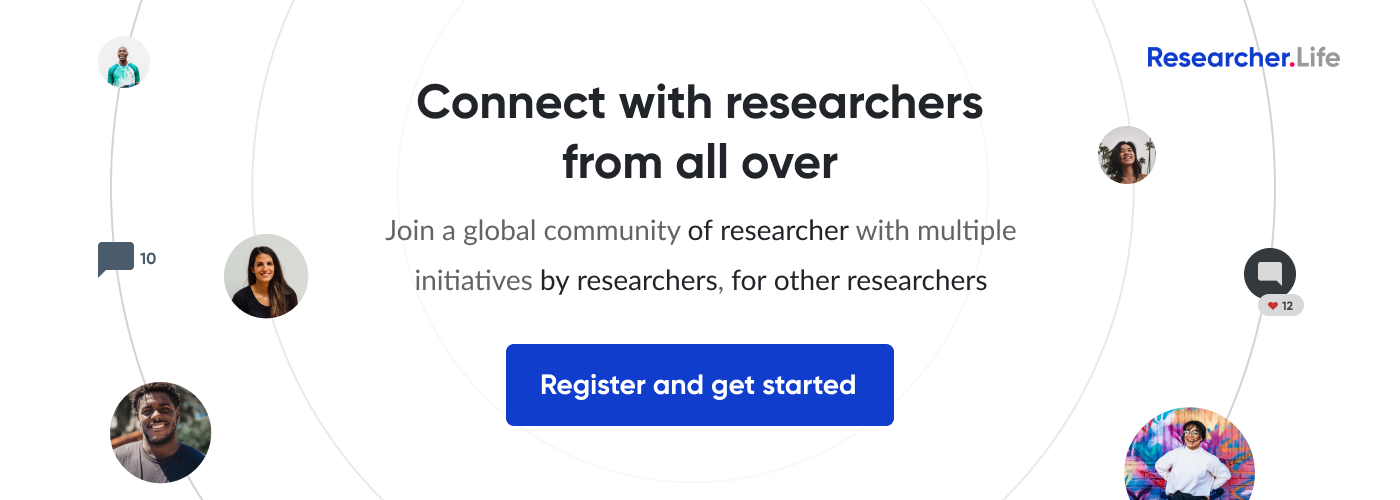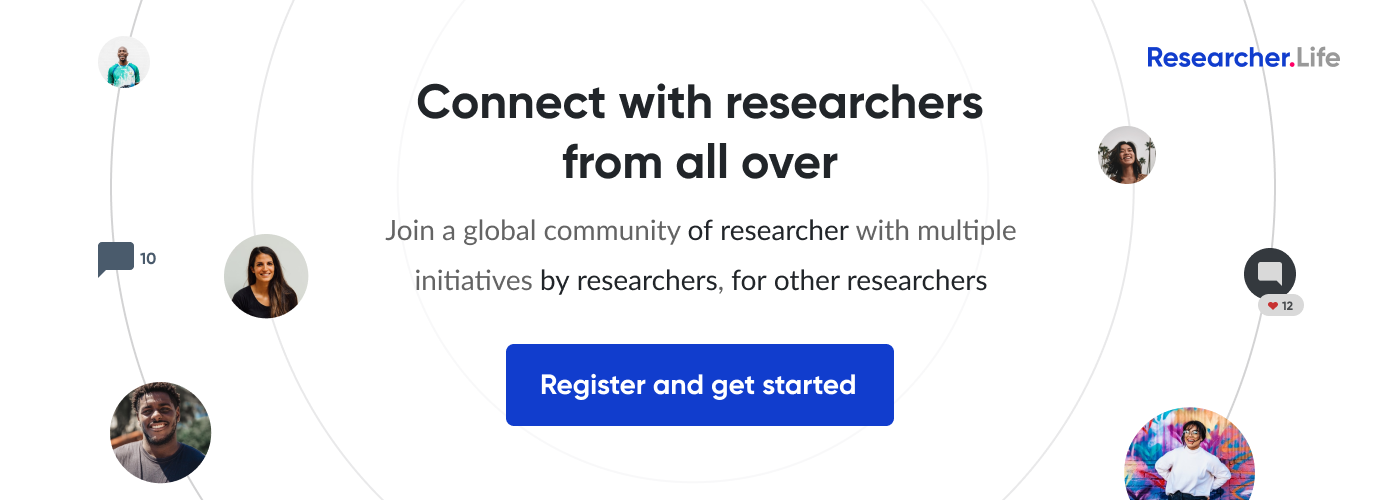Which of these six types of self-care do you practice?
Self-care for researchers
As a researcher there is a lot you need to deal with, not to mention balancing your research with the demands of your personal life. Often, in the struggle to navigate academic life, researchers neglect themselves. One thing you can do to manage your own physical and mental well-being is practice self-care. In this series we bring you a set of posts that talk about self-care in academia and how you can go about taking care of yourself.

Caring for myself is not self-indulgence, it is self-preservation, and that is an act of political warfare.
We believe that it is really important for researchers to practice self-care every day in some way or the other. Thus far, we have spoken about what self-care is and how it is important for you to place yourself first so that you feel more motivated and confident about being able to deal with the challenges in your research/academic journey. We have also talked about how you can be more self-aware and identify the early signs indicating that you need to pause and pay attention to yourself first. After all, if you are not cared for, this will reflect on your work and your overall sense of well-being, confidence and contentment.
Now here’s the thing. Self-care is a rather broad concept and if you’ve never consciously focused on yourself, it might be difficult for you to know how to practice it. Did you know that there are several types of self-care? Let’s understand what these are and how to practice them.
Physical self-care: Physical self-care implies focusing on physical health and well-being. If you’re unfit or unwell, this will affect your ability to stay alert, attentive, energetic, and positive as a researcher. I’ve heard a lot of researchers talk about how they work really long hours and that they barely get the time to eat well or work out.
Contrary to what you may believe, there are several things you could do in small measures to take better care of your physical health. For example:
- If you’re addicted to coffee or tea, try to reduce your caffeine intake.
- Eat healthy food and eat it on time without long breaks between meals.
- Drink enough water during the day.
- Try to squeeze in some form of physical activity/exercise at least for 20 minutes every day – it can be running, yoga, pilates, spinning, spot jogging, jumping jacks, brisk walking, chair squats, lunges, etc.
- (Try to) Get eight hours of sleep at least two times a week.
- If your work involves physical activity, take well-timed breaks. Stretch your legs and arms a little and rotate your neck. This small break could do wonders.
- Don’t bear it with a stoic grin if you’re feeling unwell – rest up instead or seek medical attention.
Emotional self-care: Emotional self-care is particularly important for researchers, as they face several tough situations during their academic journey, e.g., pursuing research in a foreign country far away from home or dealing with the pressure to publish. Emotional self-care refers to becoming aware of, monitoring, and managing your feelings, emotions, and responses to various situations in life. The more self-aware you are about your emotions and your way of handling them, the easier it is for you to practice emotional self-care.
If this sounds too lofty or complicated, here are a few things that could help you with emotional self-care:
- Monitor and manage your reactions to various situations: Think about how you react to positive situations. If you're feeling positive or happy, make sure you involve others in your celebration. This will make you feel more secure and supported. Also observe how you react to stressful situations, e.g., when you receive negative peer review comments or when you realize that you may need to rework your experiments. Take one thing at a time and break any problem you have down to its smaller parts. This will help you deal with the negative situation in an organized manner while helping you feel in control and manage your emotions better.
- Be patient with yourself and show yourself some kindness: Be kind to yourself. Show yourself the same compassion that you would to someone you empathize with. Don’t be hard on yourself if you feel negative emotions. Acknowledge your own pleasant and unpleasant emotions. Feelings like jealousy, anger, or hatred are as natural as those of joy, excitement, or gratitude. Give it time – give everything time. Don’t force or expect to become positive or happy overnight.
- Work on your self-talk: “Work on self-talk.” Listen to your own voice and notice how you address or refer to yourself. Avoid words or phrases like fat, ugly, failure, good for nothing. Instead, use words like safe, healthy, passionate, hardworking, etc. Think of yourself as your own advisor and cheerleader.
- Pick your tribe wisely: Choose the people you spend your time with. Stay away from peers who make you feel bad about yourself. Be around people who are positive, empathetic, and encouraging, and find people who you can talk to without hesitation. If your research work forces you into a relationship where you are belittled or not respected, go into every conversation calmly and with confidence, and know that the other person is the negative one and not you.
Social self-care: While it can be really important for you to be able to work in solitude, you cannot forget that you are a social being after all! You need people around you – friends, family, and acquaintances – who can support you in times of need and with whom you can unwind.
- Join a club or group that is relevant to your interests, e.g., a movie lovers’ group or a hikers’ club.
- Know that it’s okay to say “no” to an invitation for a social event if you don’t feel up or it.
- Make time to connect with the people who you think about calling or texting but are not able to because of your demanding lifestyle.
Spiritual self-care: This is perhaps the most intrinsic and personal of all the types of self-care. There is no right or wrong way of practicing spiritual self-care as it involves doing what makes you feel connected with yourself at a really deep, personal level. There are several ways of practicing it and you can choose the one that suits you best:
- Make sure you spend some time (even a few minutes) alone every day. Enjoy the solitude and use it to turn your focus inwards and explore your deepest (and most unsaid) thoughts, emotions, and aspirations.
- Spend time in nature. Take a walk in the woods, listen to birds chirping at daybreak, hike, go camping – spend at least one hour a month in natural surroundings.
- If you are a religious person and find that praying helps you, make sure you incorporate it in your routine.
- Meditation is a great way to connect with yourself. It helps you find a few moments of stillness and calm in an otherwise stressful life as a researcher. There are several apps and online resources that could help you find the technique that works best for you.
- Maintain a journal of your thoughts to self-reflect on the experiences that leave an impact on you.
- Find a cause that you feel deeply about and associate with it, either by contributing to it or volunteering to give your time to it, e.g., animal rescue foundations, soup kitchen, care group for the elderly, etc.
- Watch videos or read books that resonate with you at a spiritual level. This will not only broaden your perspectives but also help you stay grounded through the ups and downs of your research life and career.
Professional self-care: Some simple changes or tweaks in the way you work or perform your research can help you feel less stressed. What’s better is that you can start practicing them almost immediately:
- Brighten your workspace with things that are inspiring and make you happy, e.g., photos of loved ones, or your pet, or a researcher you admire. You can even keep a plant.
- Clean your workspace regularly and make sure it’s clutter free. Also, ensure you have essential stationery handy.
- Find the best solution for you to organize your work: e.g., make to-do lists on a piece of paper or on your laptop.
- Keep your bag/backpack light so you are able to move freely without having to lug around a bulky bag that could strain your back or shoulders.
- Find the playlists that work for you and help you concentrate better. Keep these playlists handy and use them whenever you feel the need for an additional boost of concentration for your research work or writing process.
- Create boundaries. Be stringent with any additional time you spend on unplanned activities that may not be entirely helpful for work, e.g., extra conversation time with fellow researchers. Be approachable but get ready to say “no” if you already have pressing priorities.
Financial self-care: Research is a fulfilling process but not necessarily one that is financially rewarding. It is important for you to be on top of your finances to feel more confident about your future both within and outside academia. This type of self-care is important not only for your academic life but also for you to be able to pursue your personal goals and aspirations. Here are a few things you could do to practice financial self-care:
- Regularly take stock of your financial situation. Try to maintain a log of spends and review it at least once a month so you know what changes you can make.
- You don’t have to be frugal, but you could try to make sure that you are spending on things that are most useful or of great value to you and the activities that are essential or that help you practice self-care.
- Save! And be organized about this. Determine a fixed amount you will save each week, fortnight, and month, and stick to this plan. Here, again, find what works best for you. Some people prefer a piggy bank where they can keep storing cash at regular intervals, while some prefer to directly deposit those savings in a bank account.
- Pay your bills on time. This will help you manage your finances better.
- Budget and plan your spends as much as possible.
- If a fellow researcher or close friend requests to borrow money, make sure you are in a position to lend. If not then don’t hesitate to say “no.”
Personal/Psychological self-care: In the daily grind and struggles of life in research or academia, you may ignore your own personal development. Of course you need to focus all your attention and energy on your work, but you cannot ignore the need for personal care. For example:
- Make room for some “me time” every day. Think about how you are feeling, how your day was, what you did well, what you learned, and how you developed as an individual and as a researcher.
- Cultivate hobbies that are not related to your research and make time for them at least once a week. This will help you stay active and will be a welcome break from the daily academic activities you pursue.
- Make a list of things you have never tried out. This could be skills you want to learn, places you want to visit, or new cuisines you would like to try. Try to do something to help you check the items in this list at least once a month.
- List your goals and aspirations in life. Plan how you would like to shape your life and career.
- If possible, spend at least 20 minutes each day on regular activities (like washing dishes or cooking a simple meal). The routine will help calm you down and take the pressure off your mind.
So that completes our summary of the various types of self-care you could practice as a researcher. The next time you feel stressed or worried about your situation, take a step back to identify what exactly it is that is bothering you and what type of self-care you could practice, instead of letting the worry build up within you until it drives you to the point of burning out.
But remember that since it involves the word “self”, what self-care means to you will be different from what it means to your fellow researchers or colleagues. Know that practicing self-care won’t be easy at first. Be patient with yourself and practice it consciously and incrementally. Remember that you matter. And unless you feel good about yourself, it’s tough to do anything with positivity and confidence.
What types of self-care do you practice or plan to add to your life? Let us know in the comments below.
Do you often feel stressed? Wouldn't it be nice to share your highs and lows with a group of researchers who understand you? Join Researcher Voice, a support group for researchers on Facebook that focuses on their physical, mental, and emotional wellness. Click here to join and read this article to take a sneak peak into what's going on in the group.
Comments
You're looking to give wings to your academic career and publication journey. We like that!
Why don't we give you complete access! Create a free account and get unlimited access to all resources & a vibrant researcher community.




























